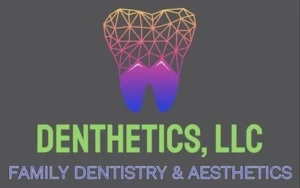Is Gum Disease a Sign of Cancer?
 Periodontal gum disease is a common but serious condition affecting the gums and bone that support the teeth. If let untreated, gum disease can lead to severe oral health issues. While it can cause significant discomfort and oral health issues, many people wonder if it could also be a sign of something more serious, like cancer.
Periodontal gum disease is a common but serious condition affecting the gums and bone that support the teeth. If let untreated, gum disease can lead to severe oral health issues. While it can cause significant discomfort and oral health issues, many people wonder if it could also be a sign of something more serious, like cancer.
Symptoms of Gum Disease
Below are the key symptoms dental patients should watch out for:
Bad Breath or Bad Taste
One of the early signs of periodontal disease is having bad breath or a bad taste in your mouth. Bacteria buildup is the leading cause of this in the gums and teeth, which produce foul-smelling compounds.
Red, Swollen, or Tender Gums
Healthy gums are firm and pale pink. Gums that are red, swollen, or tender to the touch, indicate inflammation caused by gum disease.
Gums that Bleed Easily
Bleeding gums, especially during brushing or flossing, is a common symptom of gum disease. With regular oral hygiene habits, healthy gums should not bleed.
Receding Gums
Gum recession, where your gums pull back and make your teeth appear longer, can be a sign of gum disease. Gum recession increases sensitivity by exposing the roots of your teeth.
Changes in Bite
If you notice changes in the way your teeth fit together when biting, it could be due to shifting caused by gum disease and it may affect your bite and overall oral function.
Pus Between Teeth and Gums
Any notice of pus between your teeth and gums, is a clear sign of an infection typically associated with advanced periodontal gum disease. You should immediately contact our dentist in Kenosha, Dr. Mata-Stein and schedule a dental visit.
Loose or Separating Teeth
Gum disease can weaken the structures that support your teeth, causing them to become loose or separate. If you experience loose or separating teeth, contact Dr. Mata-Stein immediately to schedule a dental appointment.
Suppose you’re experiencing any of these symptoms. In that case, it’s essential to consult a dentist in Kenosha, such as Dr. Felicia Mata-Stein in Kenosha, who can provide an accurate diagnosis and appropriate treatment.
Does Gum Disease Cause Cancer?
Current research does not conclusively prove that gum disease causes cancer. However, there is evidence to suggest a correlation between chronic inflammation, such as that caused by advanced gum disease, and an increased risk of developing certain types of cancer. Chronic inflammation can lead to systemic health issues and may contribute to the development of cancerous cells.
That said, having gum disease does not mean you will develop cancer. It is one of many factors that may influence your overall health. Regular dental exams and check-ups and maintaining good oral hygiene can minimize the risk of complications.
How Do I Prevent Gum Disease?
Preventing gum disease involves adopting and maintaining a proper oral hygiene routine and making healthy lifestyle choices. While gum disease is not a direct sign of cancer, addressing any oral health issues promptly is essential. Follow the below preventative tips to maintain a healthy smile.
- Brush your teeth twice a day
- Floss daily and remove plaque and food particles between your teeth.
- Visit your dentist in Kenosha, Dr. Mata-Stein, regularly for professional cleanings and check-ups.
- Avoid smoking and the use of tobacco, as they can exacerbate gum disease.
- Maintain a balanced diet with recommended vitamins and minerals to support gum health.
- Manage medical conditions such as diabetes, which can contribute to gum disease.
By following preventative gum disease tips, you will significantly reduce the risk of developing periodontal gum disease and maintain a healthy smile. Persistent symptoms should not be ignored, as they can become more severe health problems when left untreated.
Schedule A Gum Disease Evalutation Today!
If you’re concerned about your gum health, make an appointment with Dr. Felicia Mata-Stein in Kenosha to get a comprehensive evaluation and personalized care plan.
Take charge of your oral health today and call 262-484-4102 to schedule your visit with Dr. Felicia Mata-Stein!
